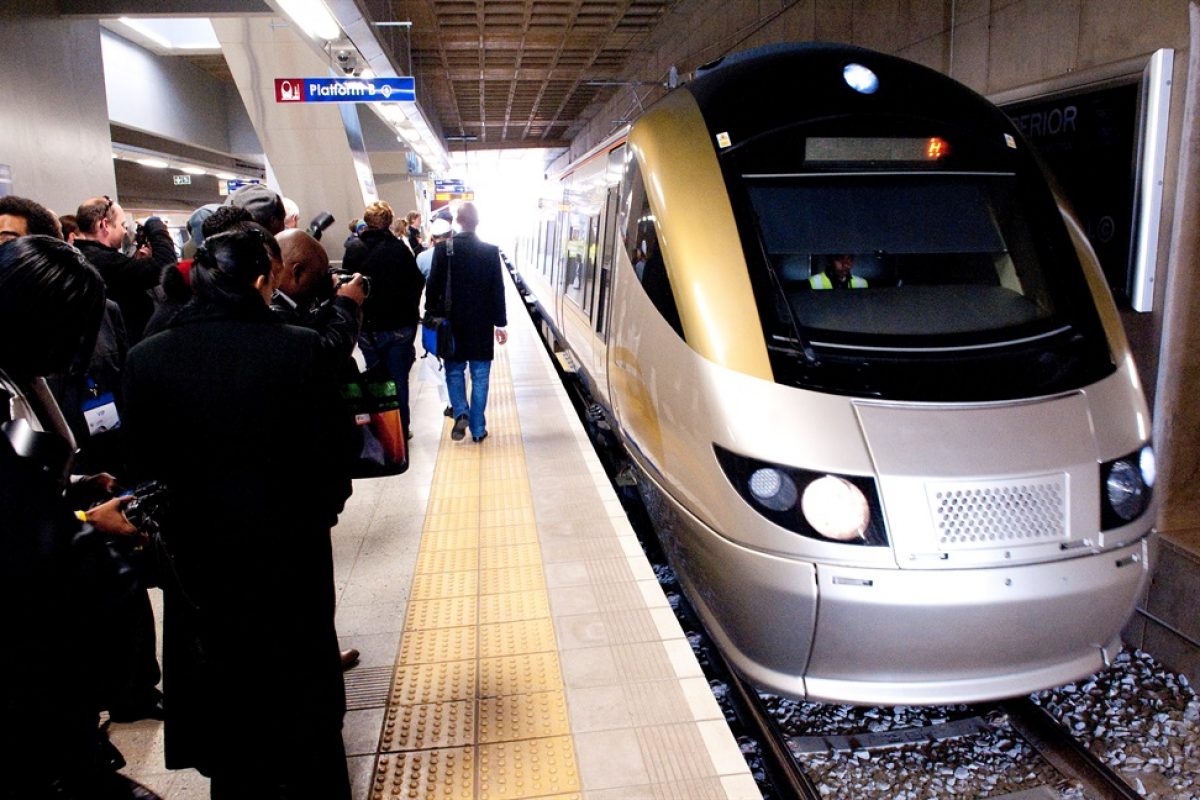The Gautrain has come under scrutiny in the media for its rise in tariffs since its launch in 2010.
According to an analysis done by BusinessTech, a single trip on the Gautrain today is anywhere from 25% to 75% more expensive than what it was when the mass rapid transit railway system was introduced to Gauteng seven years ago.
Today the Gautrain accommodates over 60 000 passengers daily, assisting in the reduction of the high volumes of traffic on the roads between Pretoria and Johannesburg.
Dr Ismail Vadi, MEC of Gauteng Roads and Transport, also announced earlier that 19 new Gautrain stations are being planned – including a new link to Lanseria Airport, and Soweto.
The United National Transport Union (UNTU) wishes to point out that South Africans must remember that the Gautrain is often referred to as the safest way to travel.
It has an Integrated Safety and Security Programme with hundreds of CCTV cameras, visible security officers on all platforms and on all trains, continuous satellite tracking of all feeder and distributer busses and secure fencing along the route to prevent unauthorised access and vandalism of the railway system and trains.
Steve Harris, General Secretary of UNTU, says the Gautrain is a service for the upmarket commuter and it strives to get more and more private vehicle users to use it instead of driving themselves.
“Unfortunately, it takes millions to maintain the services of the Gautrain and therefore the tariffs increases can be justified. UNTU does not want to see the Gautrain, of which the Union represent more than 50% of its employees, deteriorating due to the lack of funding to maintain its current infrastructure.
“This is the reason why the Passenger Rail Agency of South Africa (Prasa) is crippled today. As soon as it had to cut its funding to maintain its infrastructure, its services deteriorated to such an extent that the passenger rail operator who needs to provide the cheapest transport service to the poorest of the poor, finds itself crippled and struggles to maintain the most basic of its services.
“The lack of funding to secure railway lines has also made the assets of Prasa, its employees and commuters soft targets for opportunistic criminals. Prasa is unable to prevent commuters who does not want to pay, from riding a train without paying.
“At the end of the day, this situation is to the detriment of all South African taxpayers as Prasa is waiting to be granted a bailout to fund its turn-around strategy just like the South African Airways (SAA) who has to be bailed out once again.
“UNTU does not want to see this happening to the Gautrain in future,” says Harris.
Link to the media report: https://businesstech.co.za/news/lifestyle/198726/heres-how-much-the-cost-of-riding-the-gautrain-has-changed-2011-vs-2017/.
For more information phone Harris on 082 566 5516.
Issued on behalf of UNTU by Sonja Carstens, Media and Liaison Officer. For UNTU Press Statements phone 082 463 6806 or e-mail sonja@untu.co.za.




